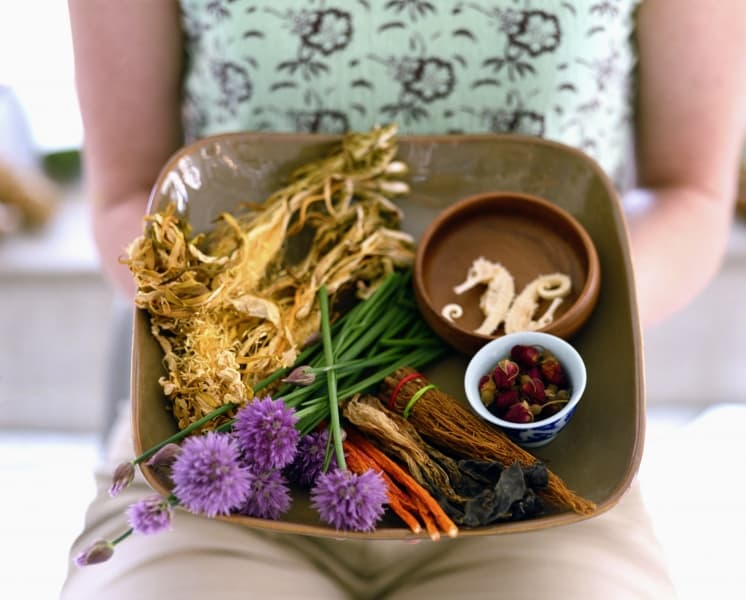
A progressive disease that cannot be cured should not mirror hopelessness and grief. Anyone suffering from an incurable disease deserves to receive palliative care to ease their symptoms and relish the beauty of life despite the ominous prognosis of their condition. While some people rely on conventional medicine and medical procedures for the relief of pain, a vast number of people prefer the integration of complementary medicine into their palliative care plan. This article focuses on some of the best natural therapies for palliative care.
What is Palliative Care?
Palliative care is a form of care that aims to provide comfort and relief to patients with a terminal illness. It can be provided alongside other medical treatments to relieve the patient of the stress and symptoms caused by the illness as well as the pain associated with curative care like chemotherapy or surgical procedures. This type of care is provided by palliative care specialists, who work with the patient's family and other healthcare providers to ensure that all of the treatment approaches employed support the patient's needs.
Dealing with an incurable disease can cause a great amount of stress and decrease the patient's zest for life. Through a palliative care program, the patient will be able to find a glimmer of joy and comfort in what may seem to be a hopeless situation. Although slightly similar to hospice care, which takes place after the treatment stage has stopped, palliative care combines standard treatments with an extra layer of emotional, physical and spiritual support. The patient may opt to receive palliative care from the time of diagnosis.
What Can Be Expected From Palliative Care?
Palliative care can be provided in hospitals, nursing homes, rehabilitation facilities, aged care facilities or at home. A palliative care team consists of general physicians, oncologists, cardiologists, nephrologists and different allied health professionals, as well as the family and other care providers of the patient. People who opt for this type of care have been diagnosed with a life-limiting illness such as advanced cancer, end-stage kidney disease or lung disease.
Several treatment options can be incorporated in the patient's palliative care plan. Many people with cancer, for instance, use natural therapies as an adjunct to reduce the adverse effects of cancer treatment. On the other hand, those who are in the advanced stage of a heart disease find relief in taking nutritional supplements.
What Types of Natural Therapies Can Support Palliative Care?

Evidence-based information from several scientific studies support the use of various mind-body therapies, dietary supplements and other healing modalities in providing holistic care to palliative care patients. Combining complementary therapies with orthodox medicine not only improves the mental, physical and spiritual wellbeing of the patient but also improves their response to treatment and gives them more control over their life. That explains why several palliative care doctors offer complementary medicine as part of their patients' treatment plan. The most commonly used modalities in every palliative care setting are massage, aromatherapy, dietary supplements, traditional Chinese medicine (TCM), yoga, music therapy, meditation.
Massage
Massage can help alleviate a variety of palliative care symptoms, including pain, anxiety, depression, nausea, stress and fatigue. Several studies have indicated massage as an effective approach to reducing symptoms in children with cancer, hence it is widely used for the treatment of cancer patients.
Dietary Supplements
Including fruits and vegetables that are high in antioxidants in the daily diet of oncology patients significantly reduces cell damage resulting from chemotherapy. Vitamin E is also found to be an effective treatment for mucositis, an inflammation of the mucous membrane lining the gastrointestinal tract as a result of cancer treatments. Furthermore, the addition of Vitamin C supplements to their diet showed promising results for treating nausea and fatigue.

Aromatherapy
Aromatherapy, whether used as a stand-alone treatment or with massage therapy, reduces chemotherapy-induced nausea, anxiety and depression. Essential oils can be inhaled or applied topically to the skin.
Yoga
Yoga is a mind-body intervention that can help reduce fatigue arising from cancer treatments. It also improves cardiac markers and the overall quality of life of people with heart diseases.
Traditional Chinese Medicine (TCM)
Research shows that palliative care patients with chronic obstructive pulmonary disease (COPD) experienced a significant improvement in their symptoms after using Chinese herbal medicine prescribed by TCM. Clinical studies also showed that Chinese herbal medicines can reduce cancer pain and tumour size.
 Music Therapy
Music Therapy
Music therapy is gaining ground in various palliative care settings as it reduces stress, anxiety and improves the quality of life of cancer patients. This mind-body therapy also delays cognitive impairment or dementia.
Meditation
Many studies have shown that meditation and relaxation techniques are powerful tools for reducing stress and anxiety in patients with cancer. They also improve sleep patterns and elevate mood. Practising guided imagery regularly has been noted to be an effective way of improving one's mental health and physiological strength.
There are several other complementary therapies that may help patients who are receiving palliative care, as well as their families, cope with their daily life. Whether you're looking for natural therapies for cancer treatments, want to regain control over your health or simply know in your heart that complementary medicine can have a positive implication in your life, speak to your team of doctors to ensure that you get quality care.
You may also check the complete list of Australia's seasoned health professionals on the Natural Therapy Pages. Get in touch with them and let them know your goals of care so that they can come up with the most suitable treatment plan for you.
|
Do you have a natural health & wellness business? |









